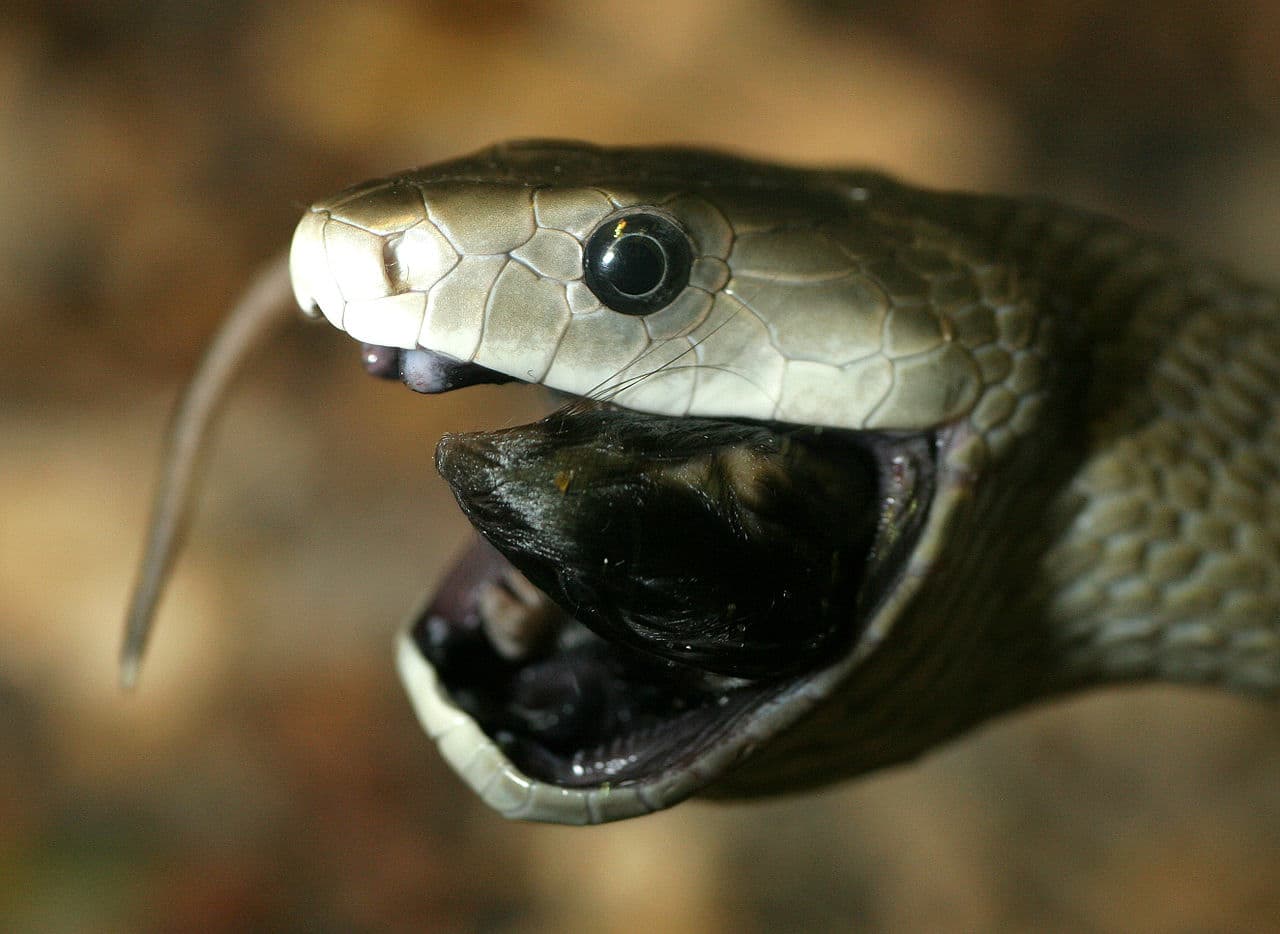Man Dies after Sucking Snake Venom to Gain “Immunity” to Toxins
OutdoorHub Reporters 07.01.15

Authorities in Ghana report that a 53-year-old man died last week after he consumed venom from a decapitated snake, apparently in an attempt to boost his immune system against toxins. According to the Ghana News Agency, the man was identified as Musah Dzikpor, a painter in the eastern border town of Aflao.
Authorities said Dzikpor encountered the snake on a farm owned by a friend when it came across a moving tractor. When the tractor operator attempted to remove it, the snake acted aggressively and was dispatched with a machete. Snake heads are a valuable commodity for traditional medicine in the region, so nearby villagers had gathered and began arguing over who should take possession of the snake.
Dzikpor, who had an interest in the alleged medicinal properties of venom, took ownership and retrieved the snake head. He immediately attempted to suck the venom from its mouth and it is there when eyewitness accounts diverge. Some say that the man was able to siphon venom from the snake and died. Others reported that when Dzikpor put the snake head in his mouth, the decapitated animal twitched and sunk its fangs into the man’s tongue, injecting the venom directly.
Since venom is generally not toxic if swallowed—although still very much not recommended—it is likely that the second version is true. Witnesses said Dzikpor began shouting in panic and the that effects of the venom were immediately apparent in the tinge of his skin. The man died 30 minutes later while being transported to a hospital.
While it may seem like an outlandish concept to many, venom drinking is actually commonplace in certain regions of the world. Either as part of traditional medicine or for cultural reasons, consuming venom through the mouth is usually harmless—as long as it does not find its way into the bloodstream before digestion. However, that is not always true, as some snakes actually secrete poison rather than venom. For this reason (and many others), North American wildlife officials generally do not recommend venom consumption.

